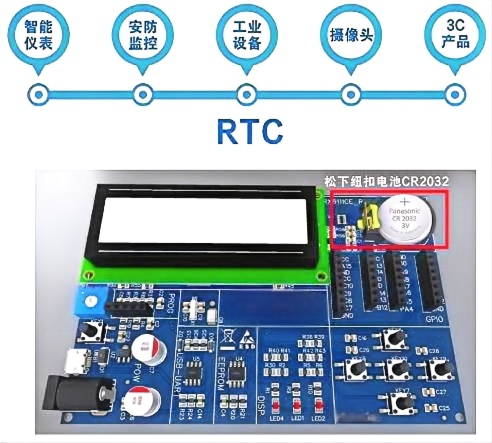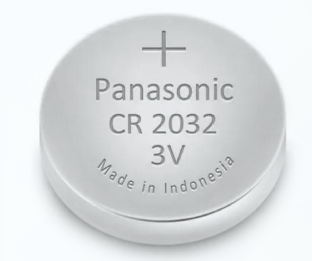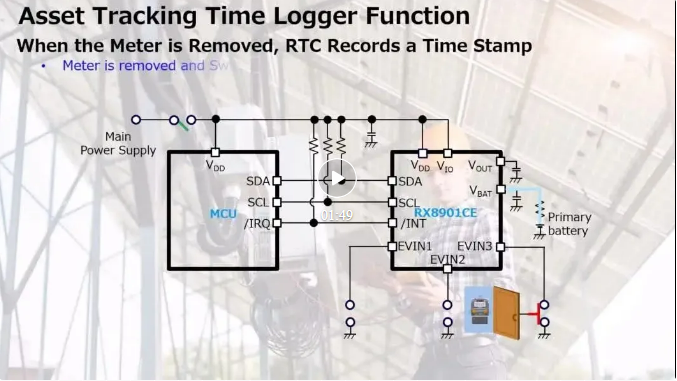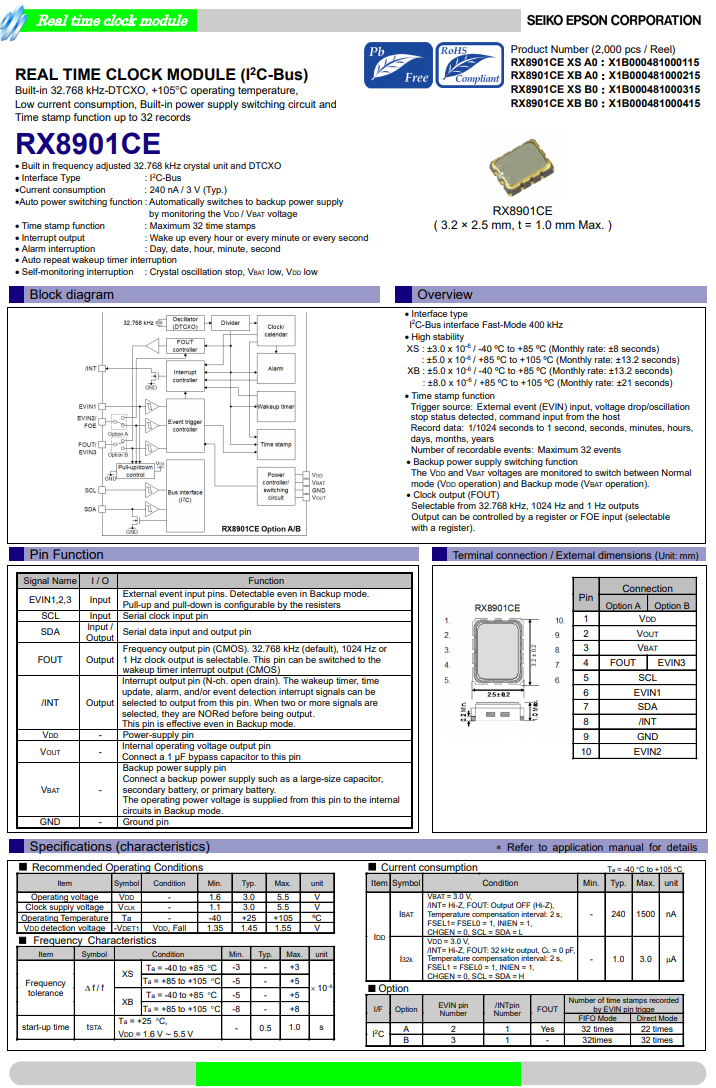POP_UP_MESSAGE_CONTENT


Combination application of EPSON high-precision, low-power RTC RX8901CE and Panasonic high-performance battery CR2032
About RTC module
RTC (Real_Time Clock) is known as the "clock chip", and its interrupt function can wake up devices in the network at a scheduled time, allowing other modules of the device to sleep for most of the time, thereby greatly reducing the overall power consumption of the device. At present, RTC is widely used in various fields such as security monitoring, industrial equipment, smart meters, cameras, 3C products, etc.

Golden Partner: Panasonic Button Battery in RTC
RTC is in an uninterrupted working state and requires an independent backup battery to ensure constant power supply. Even if the device loses power, it will not affect the operation of RTC. So, the performance of the backup battery directly determines whether the RTC can operate stably and reliably. How to make the RTC module achieve low power consumption and long life, and the Panasonic battery installed in it plays an important role.

Battery size (Max. Size): p20.0X3.2mm
Nominal Capacity: 225mAh
Rated Voltage: 3.0V
Operating Temperature: -20 ° C~+60 ° C
Reference weight (Ref. Weight): 3.0g
Panasonic button batteries can achieve long-term stable power supply and are a reliable guarantee for RTC. Taking Panasonic's CR2032 button battery as an example, it can achieve continuous power supply for more than 10 years in a 20 ℃ room temperature environment with the RTC module. Panasonic BR batteries can even achieve a lifespan of more than 15 years.
The secret to ultra long power supply comes from the long-term stability of Panasonic's battery internal resistance, excellent high-temperature storage performance, and special structural design.
The internal resistance of a battery refers to the resistance experienced by current passing through the battery, and is an extremely important parameter for chemical power sources. It is related to materials (positive and negative electrode materials, separator electrolyte, etc.), structure, and assembly process. Panasonic's unique manufacturing process ensures that the battery always maintains low internal resistance. When current passes through the circuit, the internal resistance encountered is smaller, and less energy is consumed. Compared with ordinary button batteries on the market, Panasonic batteries are resistant to high temperatures and have stable performance. Even in the later stages of device use, they still maintain a low resistance state, making them a trusted guardian of RTC.
一、 EPSON Epson high-precision, low-power RTC RX8901CE

The RX8901CE is a real-time clock module that integrates a 32.768 kHz digital temperature compensated crystal oscillator (DTCXO). It contains multiple functions:
1. For example, the timestamp function can record 32 dates and times when external or internal events occur, as well as basic real-time clock functionality;
2. For example, time and calendar, time alarm, wake-up timer, and time update interruption. Combined with automatic power switching function, including control circuitry to prevent reverse current from flowing into the main power supply, continuous temperature corrected 32.768 kHz clock generation, and Seiko Epson's original low-power technology, the RX8901CE can achieve long battery life on various systems.
characteristic
32.768 kHz crystal element with built-in frequency adjustment
The interface type is I2C bus interface
Low backup current 240 nA Typ/ 3 V
• Automatic power switching function
Automatically switch to backup power supply by monitoring VDD voltage
• Timestamp function
Can record up to 32 timestamps from year to 1/1024 seconds
• Time update interruption
Every hour, every minute, and every second
Alarm interruptions for date, time, hour, minute, and second
• Automatic repeated wake-up timer interrupt
• Self monitoring interruption
Crystal oscillation stops, VBAT is low, VDD is low.
RX8901CE specification sheet

二、 Panasonic Button Battery CR2032
As a backup power source for RTC, Panasonic button batteries are very popular. The effect brought by a stable battery will greatly extend the service life of the product.
The following picture shows a common CR-2032 battery from Panasonic. In a 20 ° C ambient temperature environment, when paired with Epson nA grade RTC, it can provide continuous power supply for more than 15 years, ensuring stable logistical support for RTC backup in any situation.
And all of this secret comes from the low internal resistance of Panasonic batteries.
Internal resistance refers to the resistance experienced by current passing through a battery. The internal resistance of a battery is an extremely important parameter of a chemical power source, which directly affects the working voltage, working current, output energy, and power of the battery. From the perspective of power and energy output, the smaller the internal resistance of a chemical power source, the better.
The internal resistance of batteries is related to materials (positive and negative electrode materials, separators, electrolytes, etc.), structure, and assembly process. A 'good' battery should ensure low internal resistance in the later stages of the product to ensure its stability.
In addition, Panasonic also has the most stable primary lithium fluoride carbon battery (BR battery) series in the industry, with a wider temperature range and stronger continuous discharge capability.












